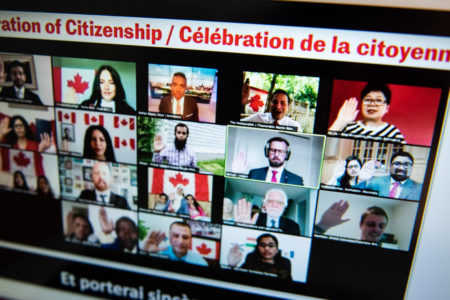
After 13 years in government and five in opposition, coupled with tribal divides that make the Canadian Liberals seem like amateurs, the UK Labour Party finds itself at what is possibly (hopefully?) its nadir. The entrenched challenges it faces, and the way it tackles them, will be deeply instructive to other political parties, especially to those in Canada.
So, what lessons does Labour need to learn, and how to do they apply to Canada?
- A long time in government, coupled with excessive party discipline, erodes the party’s capacity to think critically
Under Blair, the Labour party and caucus professionalized. Labour became a loyal, well-oiled election machine. The party embraced the 24 hour media cycle, modern campaigning and message discipline.
During the good years, critical thinking skills for MPs were not terribly necessary. There was little desire from the top to involve caucus in any major issues, to make them feel part of the power structure or as if their contributions may have some relevance.
As Labour lost the 2010 election, the party was in turmoil. Over time, reliant on a small political command centre and the civil service, the party had hollowed itself out, using bureaucrats as a scaffold to mask the internal crumbling. Staff and MPs had been stripped of the knowledge and skills needed to interpret the loss, understand how the electorate had changed, and decide where to take their movement.
The party should have engaged in heavy analysis of what it offered the country. Instead, there was no capacity to even understand this was required.
- The widening gap between MPs and the rest of us
Over a number of years, a conveyor belt to becoming a Labour MP has emerged. A kid (usually a boy) from a middle-class background, a PPE at Oxbridge, a stint at student council or volunteering on a campaign, then political advisor, and from there, you run for the boss’s seat when they step down.
This is the nepotism Labour prefers; our version of a royal family. And it has resulted in a profound disconnect between the Party and our base. There is a generation of Labour MPs and staff who have never been to the small towns and cities that formed the party’s bedrocks. A generation for whom, daily life of so many of our voters is witnessed on a sitcom, as a stereotype, rather than a reality with all its nuances. There is a vast divide between who the party thinks its electorate is, and who they really are.
For the PPE-SpAd-MP track, their party resembles the London seats Labour retained in this election. It is young, diverse, well-educated, socially liberal, and largely public sector.
It is a gulf away from the party of my parents, from the party of the white, working-class North, and from the party in whose seats, UKIP came second.
- Know Your Universe – Identity
This election was less about the economy and more about identity and aspiration – about cultural anxiety, a connection to communities, and finding your place in your country and the world. It is a given that people want a better life for their children than they themselves experienced. But “hard-working families” are more than a target demographic to be stereotyped and kept in their place.
Nor are “hard-working families” tribal. They don’t subscribe to the same mantras as partisans. Labour portrayed the Conservatives as posh, out-of-touch, in it for themselves, cruel and elitist. The bulk of Labour partisans not only believe this, they feel it in their core. Yet more Britons than ever voted Conservative, because what Labour could not see, was that people instead viewed Tories as competent, realistic, prudent and patriotic.
- Know Your Universe – Policies
The middle ground isn’t some foggy mush of policies, crammed together to appeal to every niche demographic your pollsters tell you are required to reach the golden 40%. It is not about a handful of Tory-lite policies to rip votes from the right, and a smattering of vaguely-racist immigration policies in an attempt to prevent voters going to UKIP, combined with some stereotypical lefty offerings from the 1980s, devoid of context and unanchored in a modern political reality. That’s the vacuous, too-clever-by-half stuff thought up by people who’ve only ever worked in politics and now fancy their chances playing politician too.
”œWe ended up with a cost-of-living, transactional politics which drew on polling figures that were based on sand. That is the reality of it.”
With no underpinning to your policies, you’re skittish, blowing in the wind and chasing shiny objects outside the window. You have no narrative, and you haven’t framed yourself or your opponent. You’re a slick electoral machine spewing trite bullshit bingo phrases, convinced politics is only about winning elections.
In Labour, the public saw a desperation to get back into government. Not a desperation for social change, or to better their lives, with government being the means. They saw entitlement, with power as the end in itself.
Perhaps I’m naive, but when you articulate your mission in a clear, compelling way that addresses the issues people experience in their lives, the votes are likelier to follow.
- The Past Is Not Hallowed
The debate is not a dichotomy where you return to x era or y era, with both hallowed ground. This is not about re-creating Blairism, or whether Brown was robbed. It is about re-imagining and re-positioning a movement and a party to not just respond to the needs and challenges of a country, but to anticipate them and frame them, offering progressive solutions to problems that don’t yet exist. It is not about whether the Third Way will work again.
Parties cannot campaign on battlegrounds that no longer exist, simply because it is where they feel secure and comfortable. A shallow analysis of failure that sees the boundaries of the possible as those that existed 20 years ago is doomed to fail.







